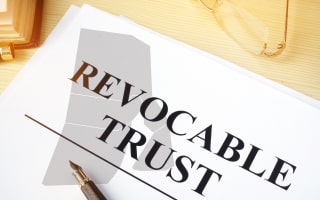How to Find Owners of Properties
in Rhode Island

It is easier to conduct a property owner search in Rhode Island than in other states because the state puts its public land records in one place. Apart from these public records, you can also consult third-party websites and other online resources to find the owner of a property for free.
But if you don't want to do any of these, you can hire a third-party search service to conduct the search for you for a small fee.
Here's how to do a standard property owner search in Rhode Island:
Check the City/Town Clerk's Office
Rhode Island consists of 39 municipalities, each with a town/city clerk who stores property records for that city or town. So, to start a property owner search in Rhode Island, you will need to visit these offices in person with relevant data relating to the property, like the owner's name, property address, description, etc. Some municipalities also have land records online, which may be a good alternative if you don't want a physical search.
Here are the websites of some of the land record offices in Rhode Island:
- Burrillville
- City of Warwick
- Town of West Greenwich
- West Warwick
- City of Woonsocket
- Town of Westerly
Visit the City/Town Recorder of Deeds
The Recorder of Deeds' office is another government office where you can search for public land records. This office keeps and registers all land-related documents for that specific city or town, including deeds, mortgages, and liens.
Here's how to locate some of the city/town's Recorder of Deeds offices in Rhode Island:
Search with the Land Records Website
Rhodes Island has a Land Records website that provides quick and direct links to municipalities within the state with public land records online. However, not all municipalities have their records hosted on the sites. Yet, the ones without online records have links to their tax assessment websites, offering users an alternative.
Here's how to use the land records website in a few quick steps:
- Visit the land records website.
- Scroll through the list of cities and towns and click on the links to their land records.
- Alternatively, move your cursor to the map on the right-hand side of the webpage.
- Hover over the linked cities/towns and click on the specific city/town you want to search for.
- Following the link will lead you to the city/town's specific webpage, where you can proceed with your property records search.
Visit the City or Town's Tax Assessor's Office
The tax assessor's office conducts property valuations in Rhode Island and keeps public records of these properties, including its property tax record. This tax record can aid a property owner's search in Rhode Island because it shows all past and present owners of the property, its current tax status, and other relevant information.
Below are the websites of some tax assessor's offices in Rhode Island:
- City of Providence
- City of Warwick
- Town of South Kingstown
- Town of North Providence
- City of Newport
- Town of North Kingstown
- East Greenwich
- Barrington
- City of Pawtucket
- City of Cranston
Use a Title Company/Agency
Using a title company is an alternative to conducting a property owner search in Rhode Island by yourself. These companies help you research a property's background history and verify whether the seller can legally sell it. They also search for title defects and anything else that may cause issues down the line.
These companies often have a database or access to numerous land records databases, making their searches easier and more direct than if you were to do it yourself. There is no fixed rate for a title company's search in Rhode Island, but their fees tend to fall within the $75 to $200 range, depending on the property in question, its location, and other factors.
Apart from these title companies, there are still other ways to find the owner of a property for free, such as by speaking to neighbors in the area, local real estate agents, attorneys, or even searching online via real estate websites.
![]() Try Commercial Services
Try Commercial Services
Commercial real estate platforms that offer access to property ownership information can save you valuable time and money. Instead of visiting several government offices or spending hours poring over government databases, you can get all the necessary information in one place.
However, the information obtained from these third-party sites is not as detailed as official records. But, considering that the information you want to verify is specific, mainly to verify a seller's claim, they should do just fine.
There are many third-party real estate websites to choose from. A popular example is PropertyChecker because it gives users access to millions of property records and is an easy-to-use platform. To conduct a Rhode Island house owner lookup via this site, simply follow the outlined steps below:
- Click the link to visit the Propertychecker website.
- Provide your chosen search criteria: the property's address, owner's name, phone number, email, or parcel ID.
- Click search and choose the result that matches best.
What Are the Different Types of Property Ownership in Rhode Island?

There are many ways to own property in Rhode Island, alone or with others. Each type of property ownership has its benefits and legal implications, so it is advisable to properly understand them before choosing one.
In Rhode Island, the most common types of property ownership are joint tenancy, tenancy-in-common, and tenancy by entirety. The table below briefly explains them and their legal implications:
| Ownership Title | Meaning | Benefits | Implications |
|---|---|---|---|
| Sole Ownership | One person has complete ownership of a property. | The sole owner can make decisions without consulting anyone. | The owner bears all liability and risks arising from the property. |
| Joint Tenancy | This arrangement involves a distribution of ownership rights between two or more persons. | There is no need for probate with this arrangement. | The right of survivorship applies here. So, if one tenant dies, their share of the property transfers to the other owner(s). |
| Tenants by Entirety | A married couple owns property together as one person. | This agreement does not require probate. | If one partner dies, the other takes full control and ownership of the property. |
| Community Property | Community Property ownership does not apply in Rhode Island. | ||
| Tenancy in Common | Two or more persons own property together but with distinct shares, not joint ownership. | All tenants can use the property regardless of their share. | Tenants can pass their share of the property to their beneficiaries through a will. |
| Condominium Ownership | Individuals own units in a building but share resources like elevators, gyms, etc, with others. | It is a cheaper way to own a home where buying properties may be too expensive. | Individuals do not own the property itself. |
| Cooperative Ownership | A person owns shares in a cooperative that has a property and can live in the property as a result. | It is another cheap way to get housing in urban areas. | Members have the right to decide on the property, usually through a voting system. |
| Trust Ownership | A trustee assumes ownership of the assets in a trust. | It is a good way to care for relatives who cannot independently care for themselves. | The trustee manages the trust property and makes decisions regarding it. |
| Life Estate | This arrangement allows a person to live in a property during their lifetime, but once they die, the property moves over to another person. | Estate taxes do not typically apply to this type of property. | The life tenant shares ownership with another beneficiary. |
Finding the Owner of a Trust or Corporation that Owns Properties in Rhode Island

Anyone, including legal entities like a trust, partnership, or limited liability company (LLC), can own property in Rhode Island. Thus, it should not be surprising if a non-human entity shows up during a property owner search in Rhode Island. The only tricky thing is finding out the human persons behind that entity, which a title company or real estate company can help with, or you can do yourself by searching through public records, business databases, local directories, etc.
Here are some detailed steps to follow when searching for the owner of a trust or corporation that owns properties in Rhode Island.
Finding the Owner of a Trust in Rhode Island
Trusts in Rhode Island are generally private documents, but it is still possible to trace the owners through a property search at the local town clerk's office. Alternatively, you can speak with an attorney who can advise you on how to get the official trust documents and further information about the trustee.
Finding the Owner of an LLC in Rhode Island
The Secretary of State's office has a database of all businesses in the state. You can search the entity from this database using the LLC's name, filing number, director's name, business address, NAICS code, and more. After entering the necessary details, click search and select the relevant search result to view the complete information concerning the LLC.
Finding the Owner of a Corporation in Rhode Island
Finding the owner of a corporation in Rhode Island follows the same business entity search used for finding LLCs. In this case, you enter the corporation's name instead of an LLC name.
Common Methods of Property Transfer in Rhode Island

Property deeds are the best proof of property transactions because they lay out what terms parties agreed to. In a property deed, you will also find the rights and liabilities of the parties to the agreement, and any legal protection that applies to them.
The following are the most common types of deeds used to transfer property in Rhode Island:
-
Grant Deed
Through a grant deed, the seller promises the buyer that they have the right title to the property and that there are no other issues except those already disclosed. However, this type of deed offers the buyer minimal protection because the seller only insures the buyer against issues arising from the time they owned the property.
-
Warranty Deed
A warranty deed provides better protection for the buyer because the seller promises to bear the loss if any issues arise from the property in the future. This type of deed is used in more formal situations where the parties do not know each other, and as such, the buyer will need better assurances before parting with their money.
-
Quitclaim Deed
This type of deed transfers property from one person to another without any assurances that it has a good title. The receiver takes the property the way it is, with all attached risks. This deed is typically used among family members and other instances where there is not likely to be a title dispute.
Some other types of property deeds you may find applicable in Rhode Island are:
- Deed of Trust
- Bargain and Sales Deed
- Mortgage Deed
Step-by-Step Guide to Property Transfer in Rhode Island

Understanding what goes into a property transfer can save you in many ways. For example, it helps you do your due diligence before buying a property to ensure there will be no issues in the future. Here are some of the steps involved in a property transaction in Rhode Island:
- Determine the type of Property Transfer: This is the obvious first step in any property transaction, and it is very important because it affects your rights to the property. Some deeds offer little protection to the buyer by nature, while some have sufficient warranties. Also, knowing what type of transfer it is can help you prepare for the costs, like legal fees and title insurance.
- Title Search: The next step is to run a title search at a relevant government office or through a title agency. This search will help confirm the seller’s right to sell the property and can verify if other issues may affect your subsequent title if you buy the property in Rhode Island, such as undisclosed legal issues, liens, and taxes. These things can be an issue later on, costing you time and money to fix.
- Preparation of the Deed: There must be evidence of this property transfer transaction for it to be valid. This evidence is a deed signed by both parties. A real estate attorney typically prepares this agreement, and in Rhode Island, there is no fixed fee; it varies from one professional to the other.
- Paying Transfer Taxes: State taxes apply to any real estate transfer in Rhode Island. They are set at $2.30 on every $500 made from the sale, and the seller bears this cost.
- Recording the Deed: Recording a deed after parties have signed it is standard practice. However, in Rhode Island, unlike in other states, the city or town where the property is located records the deed, not the county office.
- Review and Recording: After submitting the signed deed to the recorder's office, the relevant official will review the deed and require you to pay certain fees. This recording fee depends on the city or town in question. In South Kingston, recording fees for deeds are $84 per page and $1 for each extra page.
- Receipt of Recorded Deed: After vetting the deed, the recorder's office will return a copy to you for safekeeping and enter it in their system to form part of public records.
- Updating Records: It is advisable to update property records after buying a property to reflect the change in ownership.
- Title Insurance Policy Issuance: Title insurance is an optional but necessary precaution when buying a property because it can protect you if it is later discovered that the seller's title was bad or if there are other issues with the property. The cost of title insurance is not fixed, but it varies depending on the specific type of insurance. However, it is usually between 0.5% to 1% of the sales price.
Property Ownership Guide
- How to Find Owners of Properties in Rhode Island
- What Are the Different Types of Property Ownership in Rhode Island?
- Finding the Owner of a Trust or Corporation that Owns Properties in Rhode Island
- Common Methods of Property Transfer in Rhode Island
- Step-by-Step Guide to Property Transfer in Rhode Island
Rhode Island Homeowner Lookup
- Owner(s)
- Deed Records
- Loans & Liens
- Values
- Taxes
- Building Permits
- Purchase History
- Property Details
- And More!
Property Ownership Guide
- How to Find Owners of Properties in Rhode Island
- What Are the Different Types of Property Ownership in Rhode Island?
- Finding the Owner of a Trust or Corporation that Owns Properties in Rhode Island
- Common Methods of Property Transfer in Rhode Island
- Step-by-Step Guide to Property Transfer in Rhode Island